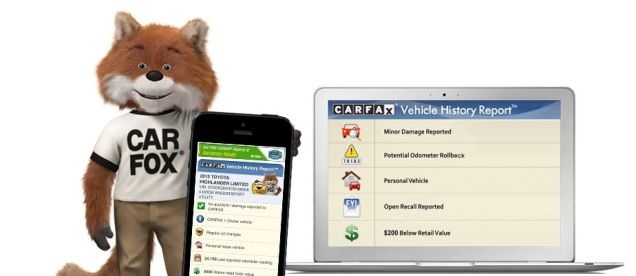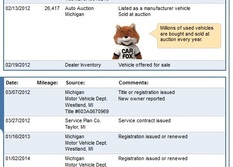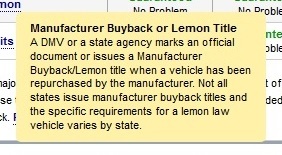|
SteveLehto What happens to defective automobiles – "Lemons" – that get bought back under the lemon law? Most of them get sold right back into the stream of commerce as used vehicles. And often, the full histories of the cars are not disclosed – not even on Carfax. I am an attorney in the state of Michigan and have been handling "Lemon Law" claims for 23 years. In a successful case, cars are often bought back by the manufacturer and the consumer gets a refund. People sometimes ask what happens to those defective cars. Are they taken out and crushed? No, the cars are sent to auction and simply put back into circulation as used cars. I have heard all kinds of stories over the years about the extent car companies go in "fixing" cars before they are sold. These policies vary from manufacturer to manufacturer and probably change all the time. The real question though is: What information is passed along with the car to let future owners know of its history? And, would Carfax pick it up? To learn a bit more about this, I grabbed five VINs at random of cars which had been bought back by Big Three automakers from clients of mine. I then ran the VINs through Carfax. I got 5 reports for $49.99 since I was bulk-purchasing. Here is what I found. Car One was a Chevrolet Cobalt, and Carfax makes no mention of a lemon law buy back. The report does reveal that it was "Listed as a manufacturer vehicle Sold at auction." Should I worry? The smiling fox says,"Millions of used vehicles are bought and sold at auction every year." The good news in this report is that the mileage shown, according to Carfax, is "LOW MILEAGE." Carfax does not hint that the reason this car has been driven so little is that it is beset with electrical problems. Car Two was a Chevrolet Corvette. No mention is made in the Carfax of the buyback but the fox tells me the vehicle was, "Listed as a manufacturer vehicle Sold at auction." Again, "Millions of used vehicles are bought and sold at auction every year." No mention is made of the reason for the car being in the auction and I can tell you that some poor guy a couple states over is wondering why his low mileage, one-owner supercharged Corvette has such severe engine problems.
Car Four was a Dodge Dart. Chrysler actually disclosed, "This vehicle was reacquired [] pursuant to applicable state consumer warranty laws or to promote customer satisfaction." I like the disclosure but can't help notice its squirrely nature. Why was it bought back? They say it was twofold. There was a "squeak from front end over bumps" and "Transmission not shifting." Hmmmm. I wonder which of those upset the original owner more? Car Five was a Ford Focus. The Carfax report prominently warned that the car had been "listed at auction as a manufacturer buyback vehicle. This information was disclosed by the seller at time of sale." No reason was given for the buyback. I had always heard that Ford was good about the disclosures so this matched up with what I had been told. A bigger question is whether the auction buyer (most likely a car dealer since most, if not all, of these cars are sold at auctions not open to the public) passed this information to their customer when they resold it? A simple solution is to brand the title - put a warning on the title to indicate the vehicle is a lemon - but only a handful of states require that. Michigan is not one of them. So, the first lesson here is: Carfax does not find Lemon Law buyback information from all the car companies in Michigan. (It would seem a safe bet that this happens in some other states as well, don't you think?) It seems that information from Chrysler and Ford gets into the system while GM's does not. I know this is based on a limited survey of five buybacks researched at random on Carfax but it does line up with what I have been told over the years. Also of note is that all five of the Carfax reports I pulled gave "guarantees" regarding the titles to these lemons, promising that they did not have any of the following title problems: "Salvage|Junk|Rebuilt|Fire|Flood|Hail|Lemon." I suspect that many people reading that would feel at ease, knowing the vehicle they were looking at was not a lemon. But – as we know – all five of these examples were repurchased under a state lemon law. To split hairs, Carfax is saying that none of these vehicles' titles has ever been branded with any of those designations.
The second lesson is that the Carfax reports give a false sense of security as to repair histories. I know that each of these vehicles had a troubled past. Each one visited service departments repeatedly (except for Car Two which we can discuss in a moment). Many of the visits are reported on the Carfax but in only the most innocuous terms. The reports show many visits to the dealer as "maintenance inspections," without mentioning the complaints the owner had which brought them into the dealer on that visit.
Car Two spent more than 30 days in for repairs in its first year because of catastrophic engine failure. That repair visit is not indicated on the Carfax report. In fact, the report shows no service visits and instead draws the reader's attention to the fact that the car has "Low mileage!" I think the fault here - the information not getting through to consumers - is not entirely the fault of Carfax. I do take umbrage with their presentation of some of the histories above but they cannot report what they are not told. Particularly with the titles. That would require all of the manufacturers to pass this information along, an action that would cost them money in the form of lowered resale values. Of course, a Federal statute mandating title branding would be a good step toward solving part of this problem. Or, the rest of the states could follow the lead of the states which already require it. Until then, if you are car shopping and you find a Carfax in front of you, look for an auction history. Regardless of whether Carfax mentions a lemon law buyback or not, keep in mind that the vehicle might be a recycled lemon if it passed through an auction as a "manufacturer vehicle." Also, understand that Carfax does not report everything and some of what it misses can be quite important. Follow me on Twitter: @stevelehto Steve Lehto has been practicing law for 23 years, specializing in consumer protection and Michigan lemon law. He wrote The Lemon Law Bible. He also wrote Chrysler's Turbine Car: The Rise and Fall of Detroit's Coolest Creation and The Great American Jet Pack: The Quest for the Ultimate Individual Lift Device. "Carfax," "Carfox" and various other associated terms and images are trademarks and owned and/or copyrighted by Carfax, Inc. This website may supply general information about the law but it is for informational purposes only. This does not create an attorney-client relationship and is not meant to constitute legal advice, so the good news is we're not billing you by the hour for reading this. The bad news is that you shouldn't act upon any of the information without consulting a qualified professional attorney who will, probably, bill you by the hour. http://oppositelock.jalopnik.com/how-carfax-doesnt-protect-you-from-buying-a-used-lemon-1653942445/+whitsongordon Comments are closed.
|
Archives
March 2021
|




 RSS Feed
RSS Feed